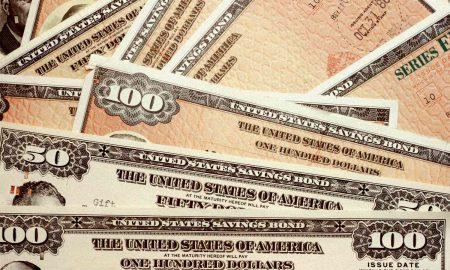
A Record-Breaking Surge in the U.S. Mortgage Rates in March 2022 – Here’s Why It Happened

Since the start of March 2022, mortgage rates in the USA kept on rising. At the end of the second week, 30 year fixed rate increased by 31 bases points, and in the third week, it again increased by 26 bases points. The experts are predicting that rates will go much higher by the end of March and maybe beyond that. There are many reasons which are contributing to such an increase in mortgage rates. Here are the biggest reasons why mortgage rates skyrocketed and what you can do about it as a borrower.
Sharp Rise in Inflation rates
 During the pandemic, when US financial markets were about to collapse, the federal government pumped billions of dollars into the market, and the federal government reduced interest rates to zero so that they could keep the market stable. However, as the economy is recovering from the pandemic, previous actions (or lack thereof) are resulting in an increasing inflation rate. The consumer price index raised to 7.9% in February, which was the highest rise since 1980.
During the pandemic, when US financial markets were about to collapse, the federal government pumped billions of dollars into the market, and the federal government reduced interest rates to zero so that they could keep the market stable. However, as the economy is recovering from the pandemic, previous actions (or lack thereof) are resulting in an increasing inflation rate. The consumer price index raised to 7.9% in February, which was the highest rise since 1980.
An increase in inflation means an increase in the prices of goods and fuel, which will add to the costs of lenders. Therefore, to cope with it, lenders pass on the increased cost to the borrowers in the form of high-interest rates.
Geopolitical Instability
The ongoing war between Ukrain and Russain has raised petrol prices globally. Petrol prices are directly proportional to inflation rates, as petrol prices affect the costs of all commodities. Hence, this geopolitical uncertainty further raised inflation rates.
FED Aggressive Action to Cope with Inflation
 To cater to increasing inflation rates, the central bank increased interest rates in the second week of March. According to monetary economics, increasing interest rates pull down inflation rates. The FED has further warned the public that more hikes in interest rates are coming in the near future. Also, it has reduced the purchases of mortgage-backed securities, which will further push interest rates to go up.
To cater to increasing inflation rates, the central bank increased interest rates in the second week of March. According to monetary economics, increasing interest rates pull down inflation rates. The FED has further warned the public that more hikes in interest rates are coming in the near future. Also, it has reduced the purchases of mortgage-backed securities, which will further push interest rates to go up.
Decrease in Unemployment Rates
The pandemic put the US economy into recession, which forced many industries to shut down or downsize, increasing unemployment rates. As supposedly the pandemic was over, industries started to thrive again, hiring more and more employees every day, which reduced the unemployment rate to 3.8%, which portrays the US economy as near to full employment.
The rise in the employment rate means now more people would be seeking mortgages, and following the simple demand and supply rule, an increase in demand increases prices. Hence, it can be hypothesized that an increase in mortgage demand puts upward pressure on mortgage rates.
Sharp Rise in 10-Year Treasury Yield
The 10-years Treasury yield is the interest paid by the government to the owners of specific securities. In 2020, when the US economy collapsed, the 10-years treasury yield went below 1 percent, and now, with the recovery of the economy, it has increased to 2.3%. This also indicates a rise in the public’s purchasing power, pushing up inflation and mortgage rates.
How Borrowers Should Deal with The Situation?
Buying a house is a very critical decision as it calls for a huge investment. Hence, the borrower needs to do complete research about the mortgage market and should take every step intelligently. Following are the few factors that borrowers should keep in mind.
 First of all, borrowers should avoid going for the adjustable-rate mortgage as the mortgage rates are predicted to further increase in the near future, and it is anticipated that, unlike in previous years, new ARM products are meant to change every 6 months, rather than 12 months. Hence, ARM products will add more costs to borrowers in the future.
First of all, borrowers should avoid going for the adjustable-rate mortgage as the mortgage rates are predicted to further increase in the near future, and it is anticipated that, unlike in previous years, new ARM products are meant to change every 6 months, rather than 12 months. Hence, ARM products will add more costs to borrowers in the future.
Secondly, they should Look for a variety of lenders to search for the best price, as different lenders might have different offers to throw, and borrowers can then pick the best offer to save some money.
As a borrower who is concerned about the high mortgage rate, you may also consider a cash-out mortgage. The cash-out mortgage is not very popular but it can benefit the borrower in some cases. For example, if the mortgage rate reduces and the price of houses increases, the borrower can exchange the old home mortgage with a new one and can get some cash in return. Also, borrowers can use it to negotiate monthly payments, reduce interest rates, or redefine the terms and conditions of the loan.
More in Loans & Mortgages
-
`
Why 50-Year-Olds Are Looking for a Career Change
In today’s fast-paced and ever-evolving job market, it’s not uncommon to see individuals in their 50s embarking on new career paths....
November 20, 2023 -
`
Why Mortgage Demand Is Crashing as Interest Rates Skyrocket
Imagine having a favorite local ice cream shop that suddenly jacked up its prices by 50%. You would probably think twice...
November 18, 2023 -
`
Santo Spirits | Sammy Hagar and Guy Fieri’s Joint Venture
In the world of entrepreneurial partnerships, some unions are destined for greatness. The unexpected alliance between Sammy Hagar, the iconic Van...
November 12, 2023 -
`
Branded Content: A Genuine Way to Connect With Your Audience
Have you ever binge-watched a series on Netflix, only to later realize that the beverage everyone’s sipping on is that brand...
November 3, 2023 -
`
Southwest Airlines Tackles Passenger and Labor Challenges
Southwest Airlines, a prominent player in the aviation industry, has found itself at a crossroads, facing a combination of passenger dissatisfaction...
October 28, 2023 -
`
Everything You Need to Know About Blended Interest Rates
Hou ever blended a smoothie and thought, “How on Earth do my strawberries, spinach, and protein powder come together to taste...
October 17, 2023 -
`
The Osbournes ‘Relaunch’ Podcast After 5 Year Break
If you were glued to your TV in the early 2000s, there is no way you missed the hilarious, raucous, and...
October 10, 2023 -
`
Tesla in China: Back-to-Back Price Drops, But No Sales Jump?
As temperatures soared in the summer of 2023, Tesla seemed to be heating things up in the Chinese market too. A...
October 6, 2023 -
`
Navigating Red Flags in the Workplace
In the journey of our careers, it’s not uncommon to encounter red flags in our jobs that signal potential issues or...
September 30, 2023















You must be logged in to post a comment Login